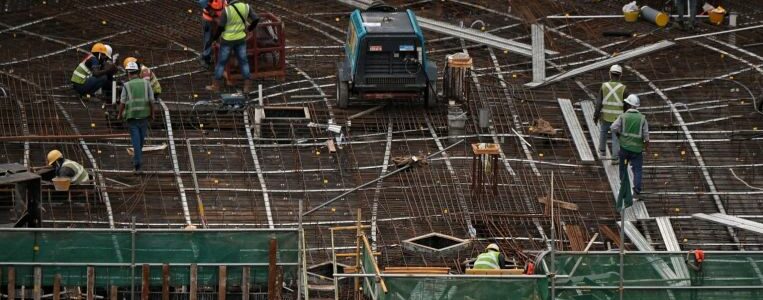
More property executives cite rising construction costs as key risk: Poll
SINGAPORE (THE BUSINESS TIMES) – Rising construction costs continue to be the biggest risk faced by Singapore’s real estate market, followed by increasing inflation and interest rates.
This is according to the third quarter 2021 Real Estate Sentiment Index published by the National University of Singapore Real Estate (NUS+RE), which represents the Department of Real Estate and the Institute of Real Estate and Urban Studies at the university.
Among the senior executives of real estate firms polled, about 93 per cent of respondents highlighted rising construction costs as a potential risk which may adversely affect market sentiment over the next six months, up from 87 per cent in the second quarter.
This was followed by rising inflation and interest rates, which saw the proportion of respondents indicating them as potential risks grow to 74.4 per cent from the previous 63 per cent.
The proportion selecting “tightening of financing and liquidity in debt markets” rose to 32.6 per cent in third quarter, from 23.9 per cent in second quarter.
Meanwhile, the proportion of respondents who foresee government cooling measures as a potential risk slipped slightly to 62.8 per cent from 65.2 per cent.
Labour and building material costs was the top concern among the developers surveyed, with 86.4 per cent and 77.3 per cent indicating that they were “very concerned” about these costs, respectively.
“The labour crunch and supply disruption caused by the pandemic have put tremendous stress on construction firms.
Topping the potential risks identified by developers, rising construction costs continue to impact the market sentiment adversely,” said Professor Sing Tien Foo, director of NUS Institute of Real Estate and Urban Studies.
When asked about future launches, about half of those polled expect moderately or substantially more units to be launched in the next six months, while 41 per cent expect the number to stay the same. Some 64 per cent expect prices of the new launches to be moderately or substantially higher in the next six months, while 32 per cent see prices remaining the same.
The study’s composite sentiment index, a derived indicator for overall real estate market sentiment, stayed fairly stable since the first quarter of the year. On a 10-point scale, it eased to 6.6 in third quarter, 6.7 in second quarter and 6.8 in first quarter.
However, NUS+RE noted that overall sentiment remains optimistic as the index has stayed above 5 since the third quarter of last year.
Join ST’s Telegram channel here and get the latest breaking news delivered to you.
Source: Read Full Article